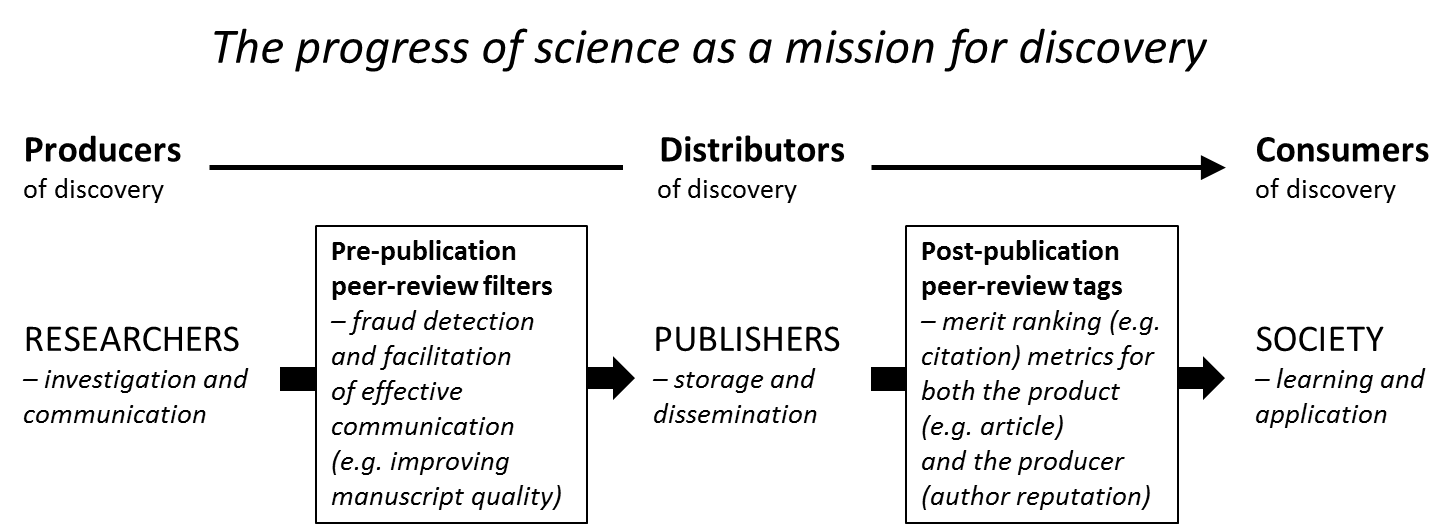The SciOR Mission —
Science should be a mission for discovery, facilitated by dissemination through pre-publication peer-review, and a reputation economy built from post-publication merit ranking:
Instead, science has become largely a mission for elitism, where pre-publication peer-review filters are used as a censorship tool for editors to preserve and elevate journal impact factor, and to compete with other journals for IF status.
This culture is now systemic within academia because it generates author addiction to chasing impact factor as a reputation metric, and also because it uses blind review in most cases, where practices are immune from scrutiny and accountability — because the identities of reviewers are known to no one except the editor, and the contents of their reviews are disclosed to no one except the editor and author.
In addition, reviewers are usually volunteers, with no compensation and no significant reward for quality service, and so — combined with being able to hide behind anonymity — there is no deterrent against biased and poor-quality reviews with draconian recommendations for rejection. For many people, the reason why they volunteer their time to review is precisely because they can remain anonymous, not because they are nice people wanting to help advance science. Anonymous reviewing provides power over colleagues — power to approve manuscripts that support the reviewer’s own research and reject those that conflict with it.
Editors motivated by elitism commonly like this state of affairs because they can use aggressive negative reviews — combined with a claim of limited page space for (now outdated) paper publication — as justification for gate-keeping manuscript rejection in order to protect and inflate journal impact factor. Authors then become jaded, yet still with little choice but to remain addicted to chasing impact factor — thus promoting incentives for academic misconduct, wasting reviewers’ time (in the ‘tragedy of the reviewer commons’), eroding reviewer incentive, and hence shrinking the pool of available and willing reviewers, especially good ones. All of it impedes the progress of science.
The mission of SciOR is to promote the progress of science as a mission for discovery, rather than a mission for elitism.
Specifically, SciOR provides support for extension and refinement of mechanisms and opportunities for:
(1) increasing reviewer incentive and reputation rewards, and thus increasing the pool of available and willing reviewers; and
(2) promoting transparent and accountable open peer-review, and thus limiting the incidence of biased and poor quality reviews often associated with blind reviewing.

